Stage, Grenoble.| Entreprise/Organisme : | Université Grenoble Alpes | | Niveau d'études : | Master | | Sujet : | Contexte général du stage
Les dispositifs numériques en santé intégrant des briques d’intelligence artificielle se multiplient : diagnostic assisté, triage automatisé, télésurveillance, optimisation des parcours, prédiction de risques… Cela se traduit par le développement de multiples solutions par des start-up, présentées à des congrès et faisant l’objet de stratégies de demande de prise en charge anticipée pour le numérique (PECAN) pour un remboursement. Les procédures d’évaluations pour les prises en charge PECAN ne sont pas les mêmes que celles pour les médicaments, alors même que ces stratégies participent à la modification des trajectoires de santé des patients ou des parcours de soin.
Les approches expérimentales qui sont le support de l’évaluation en santé paraissent inadaptées aux innovations rapides du numérique basées sur l’intelligence artificielle, avec une évaluation réalisée sur des dispositifs qui auront déjà évolué lors de leur mise sur le marché. A l’inverse, les preuves basées sur les études observationnelles permettent de prendre en compte ces évolutions, mais sont sujettes à différents biais (sélection, confusion, biais de temps immortel…).
Cela créé une controverse méthodologique sur l’évaluation des dispositifs numériques basés sur l’intelligence artificielle : que faut-il pour considérer l’efficacité d’un dispositif numérique basé sur l’intelligence artificielle, pour le patient et pour le système de santé ?
Ce stage s’appuiera sur des entretiens auprès de différents acteurs qui sont déjà identifiés dans ce contexte :
- Start-up et industriels dont le modèle économique dépend des stratégies PECAN
- Financeurs publics qui soutiennent ces innovations mais attendent des preuves (BPIFrance)
- Régulateurs qui fixent les règles du jeu dans un contexte en évolution (HAS, ANSM)
- Instances chargées des parcours de soins qui cherchent à savoir si ces outils améliorent réellement l’organisation des soins et permettent une réduction des coûts de santé (ARS, CEPS)
Problématique
Comment se construisent, s’opposent ou s’articulent les preuves issues des études observationnelles et interventionnelles dans l’évaluation des dispositifs numériques en santé basés sur l’IA ? Ces différentes sources de preuves influencent-elles différemment les décisions des régulateurs, financeurs et acteurs économiques, notamment dans le cadre des dispositifs PECAN ?
Objectif principal
Construire un protocole et mener une enquête de terrain (analyse documentaire, entretiens ou observations), afin d’analyser la controverse méthodologique entre études observationnelles vs. interventionnelles dans l’évaluation de l’IA en santé et comprendre ses implications sur :
- la preuve clinique (impact santé),
- la preuve organisationnelle (impact parcours),
- la décision socio-économique (investissements, régulation, remboursement).
Objectifs secondaires
- Recherches bibliographiques sur la thématique
- Cartographier les différents acteurs en présence et leurs logiques (économiques, réglementaires, médicales)
- Comparer plusieurs études (IA diagnostique, télésurveillance, triage, imagerie, etc.) en mettant en évidence leurs biais, limites et angles morts.
- Analyser comment le dispositif PECAN redéfinit les attentes des régulateurs en matière de preuves. | | Date de début : | dès que possible | | Durée du contrat : | 6 mois | | Rémunération : | 530 | | Secteur d'activité : | recherche santé publique | | Description : | Contexte général du stage
Les dispositifs numériques en santé intégrant des briques d’intelligence artificielle se multiplient : diagnostic assisté, triage automatisé, télésurveillance, optimisation des parcours, prédiction de risques… Cela se traduit par le développement de multiples solutions par des start-up, présentées à des congrès et faisant l’objet de stratégies de demande de prise en charge anticipée pour le numérique (PECAN) pour un remboursement. Les procédures d’évaluations pour les prises en charge PECAN ne sont pas les mêmes que celles pour les médicaments, alors même que ces stratégies participent à la modification des trajectoires de santé des patients ou des parcours de soin.
Les approches expérimentales qui sont le support de l’évaluation en santé paraissent inadaptées aux innovations rapides du numérique basées sur l’intelligence artificielle, avec une évaluation réalisée sur des dispositifs qui auront déjà évolué lors de leur mise sur le marché. A l’inverse, les preuves basées sur les études observationnelles permettent de prendre en compte ces évolutions, mais sont sujettes à différents biais (sélection, confusion, biais de temps immortel…).
Cela créé une controverse méthodologique sur l’évaluation des dispositifs numériques basés sur l’intelligence artificielle : que faut-il pour considérer l’efficacité d’un dispositif numérique basé sur l’intelligence artificielle, pour le patient et pour le système de santé ?
Ce stage s’appuiera sur des entretiens auprès de différents acteurs qui sont déjà identifiés dans ce contexte :
- Start-up et industriels dont le modèle économique dépend des stratégies PECAN
- Financeurs publics qui soutiennent ces innovations mais attendent des preuves (BPIFrance)
- Régulateurs qui fixent les règles du jeu dans un contexte en évolution (HAS, ANSM)
- Instances chargées des parcours de soins qui cherchent à savoir si ces outils améliorent réellement l’organisation des soins et permettent une réduction des coûts de santé (ARS, CEPS)
Problématique
Comment se construisent, s’opposent ou s’articulent les preuves issues des études observationnelles et interventionnelles dans l’évaluation des dispositifs numériques en santé basés sur l’IA ? Ces différentes sources de preuves influencent-elles différemment les décisions des régulateurs, financeurs et acteurs économiques, notamment dans le cadre des dispositifs PECAN ?
Objectif principal
Construire un protocole et mener une enquête de terrain (analyse documentaire, entretiens ou observations), afin d’analyser la controverse méthodologique entre études observationnelles vs. interventionnelles dans l’évaluation de l’IA en santé et comprendre ses implications sur :
- la preuve clinique (impact santé),
- la preuve organisationnelle (impact parcours),
- la décision socio-économique (investissements, régulation, remboursement).
Objectifs secondaires
- Recherches bibliographiques sur la thématique
- Cartographier les différents acteurs en présence et leurs logiques (économiques, réglementaires, médicales)
- Comparer plusieurs études (IA diagnostique, télésurveillance, triage, imagerie, etc.) en mettant en évidence leurs biais, limites et angles morts.
- Analyser comment le dispositif PECAN redéfinit les attentes des régulateurs en matière de preuves. | | En savoir plus : | No link
Sujet de stage M2 AlgoCare VF.pdf | | Contact : | sbailly@chu-grenoble.fr |
|



















